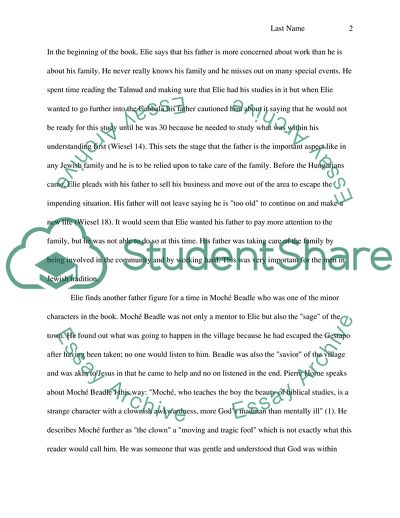Cite this document
(Father-Son Relationship in Night by Elie Wiesel Essay, n.d.)
Father-Son Relationship in Night by Elie Wiesel Essay. https://studentshare.org/literature/1724064-night-by-elie-wiesel-father-son-relationship
Father-Son Relationship in Night by Elie Wiesel Essay. https://studentshare.org/literature/1724064-night-by-elie-wiesel-father-son-relationship
(Father-Son Relationship in Night by Elie Wiesel Essay)
Father-Son Relationship in Night by Elie Wiesel Essay. https://studentshare.org/literature/1724064-night-by-elie-wiesel-father-son-relationship.
Father-Son Relationship in Night by Elie Wiesel Essay. https://studentshare.org/literature/1724064-night-by-elie-wiesel-father-son-relationship.
“Father-Son Relationship in Night by Elie Wiesel Essay”. https://studentshare.org/literature/1724064-night-by-elie-wiesel-father-son-relationship.


